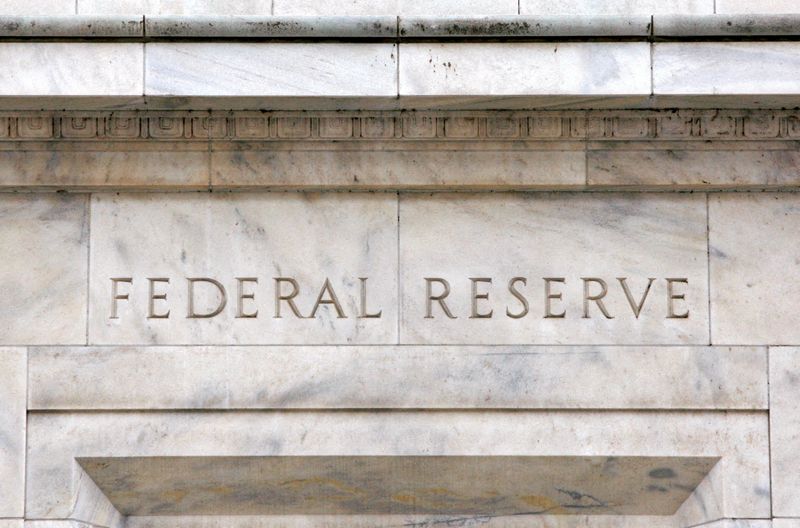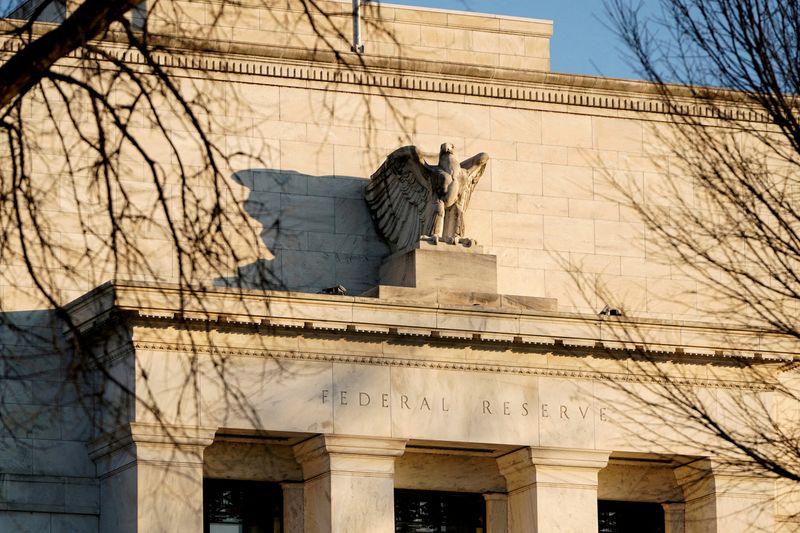By Pete Schroeder
(Reuters) -Major banks and business groups sued the Federal Reserve on Tuesday, alleging the U.S. central bank's annual "stress tests" of Wall Street firms violate the law.
The lawsuit filed in U.S. District Court in Columbus (WA:CLC), Ohio, claims the Fed's practice of determining how big banks perform against hypothetical economic turmoil, and assigning capital requirements accordingly, do not follow proper administrative procedure. Plaintiffs included the Bank Policy Institute, the U.S. Chamber of Commerce and the American Bank Association.
The lawsuit marks the latest example of the banking industry growing bolder and challenging in court their regulators' powers, particularly in the wake of recent Supreme Court rulings placing fresh restrictions on administrative authority.
In June, the Supreme Court dealt a major blow to such power by overturning a 1984 precedent that granted deference to government agencies in interpreting laws they administer. The so-called " Chevron (NYSE:CVX) doctrine" had called for judges to defer to reasonable federal agency interpretations of U.S. laws deemed to be ambiguous.
While the 2010 Dodd-Frank law passed following the global financial crisis broadly requires the Fed to test banks' balance sheets, the capital adequacy analysis the Fed performs as part of tests, or the resulting capital it directs lenders to set aside, are not mandated by law.
Specifically, the groups are calling for the Fed to make public and subject to feedback the now-confidential models they regulators use to gauge bank performance, as well as details of the annual scenarios they create to test for weaknesses. The groups said they did not want to kill the stress testing program, which provides an annual bill of health to the nation's biggest firms, but argue the process needs to be more transparent and responsive to public feedback.
On Monday, the Fed announced plans to pursue similar changes ahead of the 2025 exams, citing recent legal developments, but the industry opted to proceed with its lawsuit. A Fed spokesperson declined to comment on the lawsuit on Tuesday.
"The opaque nature of these tests undermines their value for providing meaningful insights into bank resilience," Rob Nichols, president and CEO of the American Bankers Association, said in a statement.
"We remain hopeful the Fed will address long-standing issues with the stress tests, but this litigation preserves our ability to seek legal remedies if the Fed falls short.”

These tests, which banks have complained for years are opaque and subjective, are a central piece of the U.S. regulatory bank-capital structure. The Fed has long resisted calls to completely open up the testing process, due to concerns that it could make it easier for banks to clear the exams.
How banks perform on the test informs how much capital they must set aside to meet their obligations and also dictate the scope of dividend payouts and stock buybacks.
